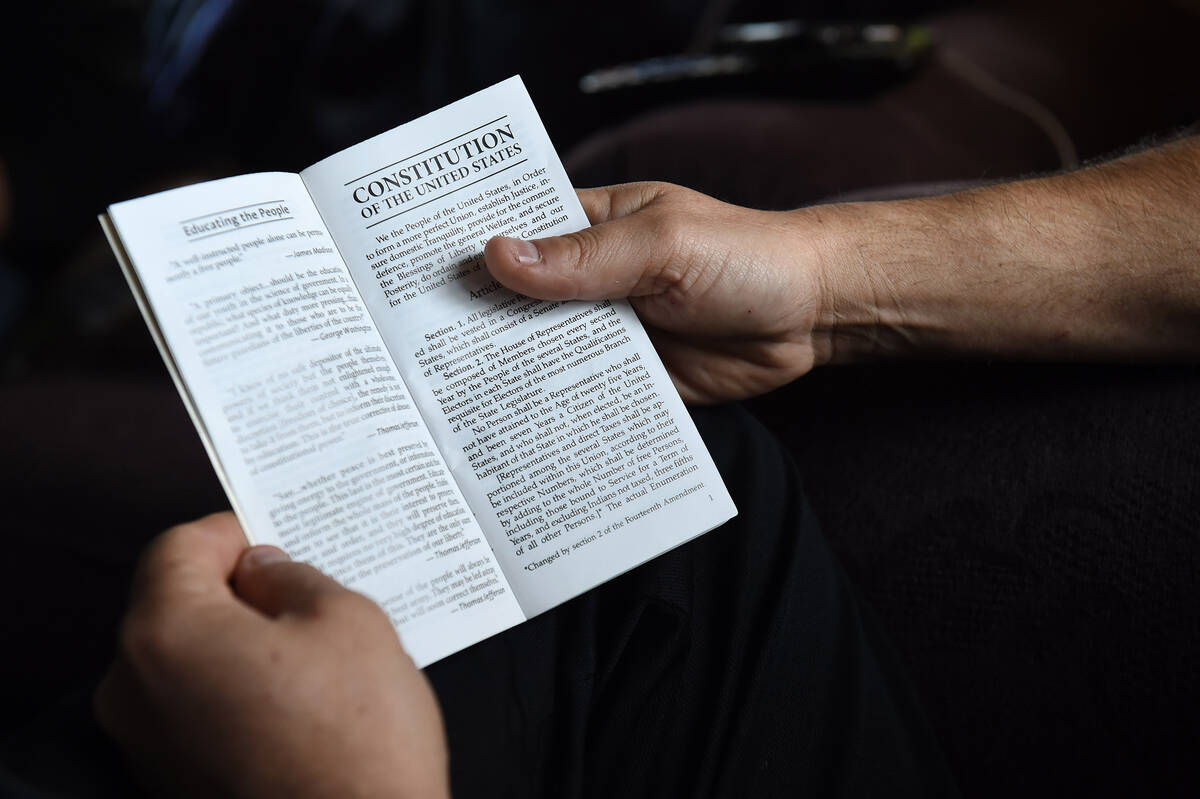EDITORIAL: A man’s home is his castle … except
The Fourth Amendment safeguards one of our most cherished freedoms: the sanctity of the home. Potent and succinct, it is a bulwark against tyranny.
“The right of the people to be secure in their persons, houses, papers, and effects, against unreasonable searches and seizures, shall not be violated, and no Warrants shall issue, but upon probable cause, supported by Oath or affirmation,” the amendment reads, “and particularly describing the place to be searched, and the persons or things to be seized.”
Over the years, however, courts have chipped away at this vital protection, crafting various exceptions for law enforcement. This fall, the U.S. Supreme Court has the opportunity to close one of those loopholes as it hears one of the more significant Fourth Amendment cases in recent memory.
The dispute arose in Montana when in 2021 police went to the home of William Trevor Case after his ex-girlfriend reported he was threatening to kill himself. When Mr. Case failed to answer the doorbell, the officers had a discussion over how to proceed, according to news accounts.
After nearly 40 minutes, they decided to enter the home through the unlocked front door under the so-called “emergency aid exception,” which was created by judicial fiat and waives the warrant requirement if officers believe an emergency inside demands immediate action.
The police eventually found Mr. Case in a closet. Ironically, an apparently startled officer shot him upon discovery, but he survived. Mr. Case was later charged with felony assault of a police officer for allegedly pointing a weapon at an officer.
Attorneys for Mr. Case asked that the evidence collected against him be suppressed because the police did not have a warrant to search his home. But the Montana Supreme Court ruled that the search was “reasonable, given the facts and circumstances.”
But if the decision is allowed to stand, the Fourth Amendment would be significantly devalued. In fact, the officers had no idea whether an emergency actually existed at the Case household. They simply had a tip that something might be awry. It’s worth noting that they also had plenty of time to secure a warrant. How urgent was the situation if police officers waited a considerable time to enter?
Yes, there may be emergencies in which quick police actions are justified in the name of public safety. But upholding the Montana court’s conclusion would open the door — no pun intended — for law enforcement agents to ignore the Fourth Amendment on the flimsiest of pretenses. The Supreme Court now has the opportunity to clarify that the police must have more than just a suspicion of exigent circumstances to ignore one of the foundational protections in the Bill of Rights.

















